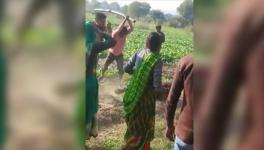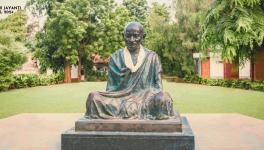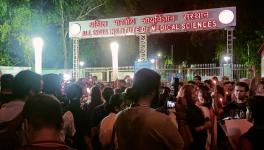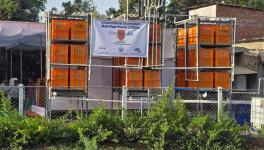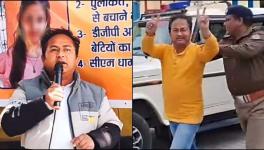Una Flogging Case – No Protection For Witnesses, 21 of 43 Accused Out on Bail
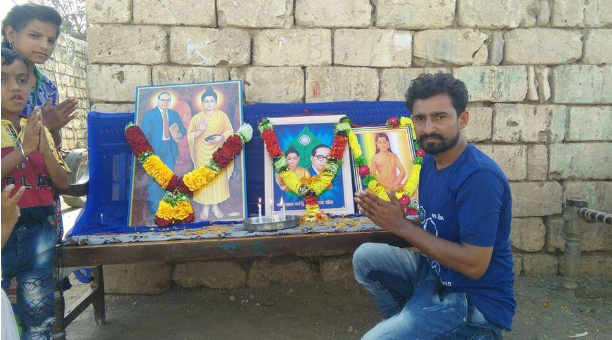
Vasram Sarvaiya
On July 16, 2016, seven people belonging to a dalit family were flogged in public in Una, Gujarat. The incident was videotaped and circulated by men belonging to upper caste. The trial of the case that had begun more than two years later in August 2018, now stands the risk of witnesses turning hostile.
Dipendra Yadav, the Public Prosecutor in the case has been repeatedly writing to concerned authorities demanding an office for himself to prepare the witnesses, and security for witnesses but in vain.
“He (Dipendra Yadav) has been provided with security but he doesn’t have an office space provided by the government. He cannot prepare the witnesses in the lobby or open space, that is risky. He has to travel about 100 kilometres every week from his residence in Junagarh district to the Veraval special court in Gir Somnath district and has written to all concerned authorities to provide him with an office space. Besides, the witnesses have to be provided with security,” Govind Parmar, advocate for the Sarvaiya family who were flogged, told NewsClick.
“21 out of 43 accused have been granted bail by the High Court of Gujarat. There have been instances where the accused who are out on bail have driven the witnesses in their car to court on trial dates with them, influencing them to turn hostile,” added Parmar, who is also a member of the Human Rights Law Network (HRLN).
Also Read: In Landmark Judgement, 11 Accused Held Guilty Six Years After Dalit’s Murder in Una
Another Attack on Victims
It is to be noted that Ramesh Sarvaiya and his cousin Ashok Sarvaiya, two of the seven victims of flogging were attacked on April 25 last year by one of the accused out on bail. Subsequently, an FIR was lodged against accused Kiransinh Darbar and his friend in the Una police station.
VM Khuman, the police inspector of Una police station had told the media during the time of the incident, “Kiransinh identified Ramesh and Ashok. He pointed towards the Sarvaiya brothers, mocked them and told his friend that those are the men he had thrashed. They also stopped the brothers and threatened them to take back the case. When Ramesh resisted, the duo charged at them with a wooden spade but Ramesh held his hands and nobody was injured.”
Prime Accused Out on Bail
Kiransinh Darbar went absconding following the incident and the FIR against him. Noticeably, Darbar had been identified by the Crime Investigation Department to be one of the accused who was thrashing the Sarvaiyas in the video that was widely circulated and had included his name in the charge sheet. However, he was granted bail by the Gujarat HC on the ground that the trial will take a long time.
In December 2016, the court of Justice A.J. Desai had held that the charge sheet had been filed and that the trial will take time. The court, while granting bail to Shantilal Monpara, the president of Sanatan Charitable Trust and alleged mastermind of the incident, had held that, “Prima facie it appears that there is no direct or indirect role of the applicant which should establish that he has instigated the assaulters and was in contact with them. It appears that he was not present at the place where the incident has taken place.”
Four other accused, including then police inspector Nirmalsinh Jhala, Nitin Kothari, Natvarsinh Mer and then police sub-inspector Narendra Pandey, all of whom were named by the CID Crime in the charge sheet, also got conditional bail.
“Out of the six prime accused who are still under arrest, two had pleaded for bail in the High Court on February 12 this year, but their application was rejected,” said Parmar.
Thirty four of the 43 accused, including Kiransinh Darbar, were charged under sections IPC 307 (attempt to murder), IPC 397 (robbery), IPC 365 (kidnapping), IPC 355 (assault to dishonour a person), IPC 342 (wrongful confinement), 147 (rioting), 324 (causing hurt by weapon) and 120B (criminal conspiracy). They were also charged under sections 3(1)(e), (r), (s), (u), 3(2), 5(a), 3(1)(d) of Prevention of Atrocities Act and 66A and 66B of Information and Technology Act for circulating the recording of the incident.
In October 2018, the Sarvaiya family had met officials of the State Home Department to submit a memorandum demanding the family be provided with security personnel while travelling as the current home guard personnel deployed at their residence was not sufficient; a vehicle for travelling owing to their financial situation; fast tracking the court case as it had gone into a series of adjournments within two months of the beginning of the trial; and working facilities and security for Public Prosecutor Dipendra Yadav, lest he is forced to quit.
In response, the state provided a security personnel to the Public Prosecutor but did not respond to the other requests, including security concerns of the Sarvaiya family and the witnesses.
Also Read: Fed up With Caste Violence, Dalit Family in Gujarat Pleads for Euthanasia
In November 2018, Vasram Sarvaiya, one of the victims of flogging had on behalf of his family pleaded euthanasia stating that Gujarat government had not fulfilled its promises. In a letter written to President Ramnath Kovind, Vasram expressed that the family has no income after quitting the traditional work of skinning animals. He had further stated, “The state has not provided the family or the witnesses adequate security while the case is being heard in the court. On the other hand, the accused are out on bail and are violating their bail conditions while the government isn’t taking any step.”
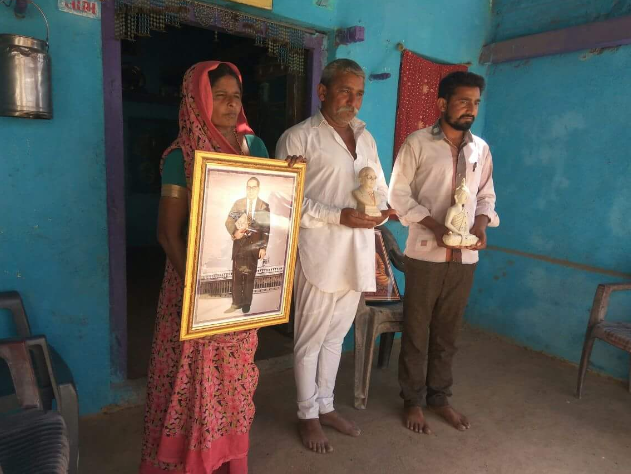
Balubhai Sarvaiya with his wife and son Vasram.
Pending Cases
In response to the widespread protests that followed the flogging incident in Una, the Gujarat government had directed the special courts to speed up the trial process of cases filed under Scheduled Castes and Scheduled Tribes (Prevention of Atrocities) Act 1989. Sixteen special courts were set up in 33 districts, however, they still have a pile of pending cases.
To add to that, the conviction rate in atrocity cases in Gujarat has been falling every year since 2012, as per the data of the National Crime Records Bureau (NCRB). The data reveals that the number of atrocity cases registered in 2012 were 1,026 of which 996 cases were charge sheeted but only 65 saw conviction. While in 2015, 1,009 cases were registered, of which charge sheet was filed on 949 cases and only in 11 cases, the accused were convicted.
In 2017, as per data acquired through RTI by Kausik Parmar, a Gujarat based dalit activist, 1,515 cases were registered, which is the highest number in 17 years.
Read More: Rajkot Flogging and Murder Again Shows the Reality of Being Dalit in India
Get the latest reports & analysis with people's perspective on Protests, movements & deep analytical videos, discussions of the current affairs in your Telegram app. Subscribe to NewsClick's Telegram channel & get Real-Time updates on stories, as they get published on our website.












